Tell us a little about yourself:
My name is Steve Holden, and I currently live in Southern California near San Diego. I originally grew up in Northern California near Sacramento. I came down to San Diego to go to San Diego State University (SDSU) to study computer science, and fell in love with San Diego. I have been blessed to be able to stay here in the San Diego area with my wife, three kids, and two dogs.

What do you do for work?
Since graduating from SDSU I started working at a Research & Development (R&D) Navy Lab. My current role is Lead Systems Engineer (LSE). I started out my career as a software developer and database engineer, but I am now doing more system analysis, architecture, engineering, integration, and testing. I have also been a project manager with responsibilities related to managing cost, schedule, and performance.
How long have you been practicing GTD, how did you hear about it, which tools do you use, etc.?
I started practicing GTD in 2002. It is kind of strange, but I got started with GTD based on the name “Getting Things Done.” I had just finished reading the book Execution by Larry Bossidy and Ram Charan that had the subtitle “The Discipline of Getting Things Done.” And after reading the book Execution, David Allen’s book title must have caught my eye at the airport bookstore, because I picked it up and started reading it immediately. I couldn’t put the book down because it really clicked on many levels with my current feelings of being overwhelmed and having no good way to handle all the inputs in my life. As soon as I was done reading I just started implementing it at home and work.
Given the nature of my work for the government, I’ve always had two systems—one for work and one for home. My work system has been pretty stable for years. I’m using Microsoft Outlook® configured like the recommended Outlook Setup Guide using Outlook Tasks for tracking Next Actions, Projects, Waiting For, etc. Usually each Project I have gets a dedicated folder in my Windows® computer’s Projects folder. Most of my support material is in Microsoft Office products like Word, Excel®, and PowerPoint®. I am keeping work related Reference material in Microsoft OneNote®. I am a big fan of doing mind mapping, and use the Windows version of MindManager® for doing mind mapping, brainstorming, Mind Sweeps, note taking, project planning, etc.
My personal system is currently using Nirvana®. I just made the change in January 2019. My Nirvana setup is using the recent Nirvana Setup Guide. Before the change I was using Google Keep for several years, and my personal blog post about my Google Keep setup still gets a lot of traffic (http://bit.ly/GTD-Using-Google-Keep). Before that I dabbled with doing GTD in Evernote. I am really happy with Nirvana. It is simple to use and I really like the way you can link Next Actions to Projects. I also like that I can access Nirvana via web or with an app on my Android phone or with my iPad.
How has GTD made a difference in your work and life?
GTD has been so central to my life—17 years if my math is correct. It keeps me on track and gives me a sense of control in the whirlwind of life. I used to be super stressed out about everything going on, however, adopting GTD has made everything so manageable that I actually can’t conceive of not having it in my life.
Two things do come to mind though as examples.
The first is having a system like GTD lets me be more present and actively engaged in where I am physically at. Having my GTD “external brain” lets me account for all my commitments, and what I plan to do about each of those commitments as already been decided. This gives me the freedom to know that if I am in a meeting, or sitting on the couch watching a movie with my family, that this is the best use of my time in that moment.
The second is that if something new — good or bad — shows up, I know how to deal with it and how to process it into my system. Back in October my Mom passed away suddenly. It was awful from an emotional perspective. There was so much that had to be done as her son and Executor that it would have been completely debilitating without having my GTD skills. I can honestly say that GTD was one of many things that got me through that period until now, and me being “organized” really helped my family deal with this loss.
What areas of GTD are you doing really well (or at least better than you used to)?
Overall my GTD game really started improving back in October 2017. The reason is that I had on my Someday/Maybe list — “Become a Certified Trainer of GTD” for my work. And in October I completed that training with VitalSmarts, and then in 2018 I conducted 8 courses training 87 co-workers.
Being on the hook to facilitate classes about GTD really gave me additional motivation to make all of GTD a regular habit. I was pretty good with weekly reviews, but now I’m much better in timeliness and consistency. I have also moved from having a weekly review for Work on Monday mornings and then a separate weekly review on Sunday for Personal, to just one weekly review on Sunday afternoon. This is giving me a better perspective as I start the work week on Monday.
What areas of GTD would you like to get even better at doing?
The one area that I’ve been working on more recently is with ENGAGE. This is to make sure I actually have time on my schedule to do the work that I’ve committed myself to. One way I’ve been experimenting with improving on ENGAGE is by using a Panda paper planning system to make sure I get the right amount of reflection to really know what my key projects, the key tasks that need to get done in a day, and making sure I am still tracking things I am grateful for, things I’m excited about, my big wins, and things I still need to improve on. So far it has been pretty positive.
What is one piece of advice you would give to someone just starting out with GTD?
Remember that doing GTD is for you. You aren’t being graded on it, and you aren’t being compared to others. Your GTD practice is personal—it is you working on you being a better human being. It is not an event, but a journey that will take time. The payoff will be a better you. And communities like GTD Connect can help you on this journey.

